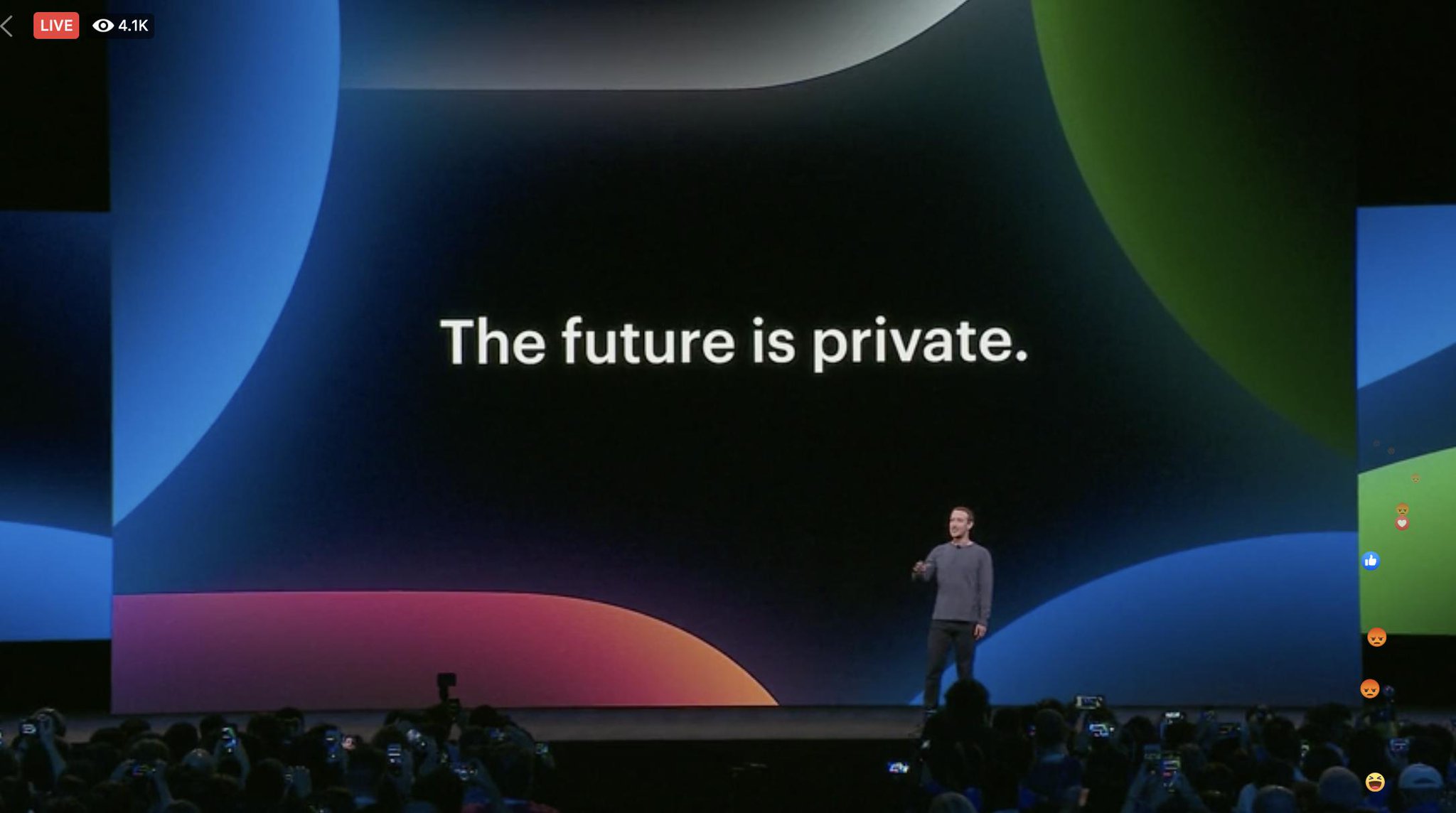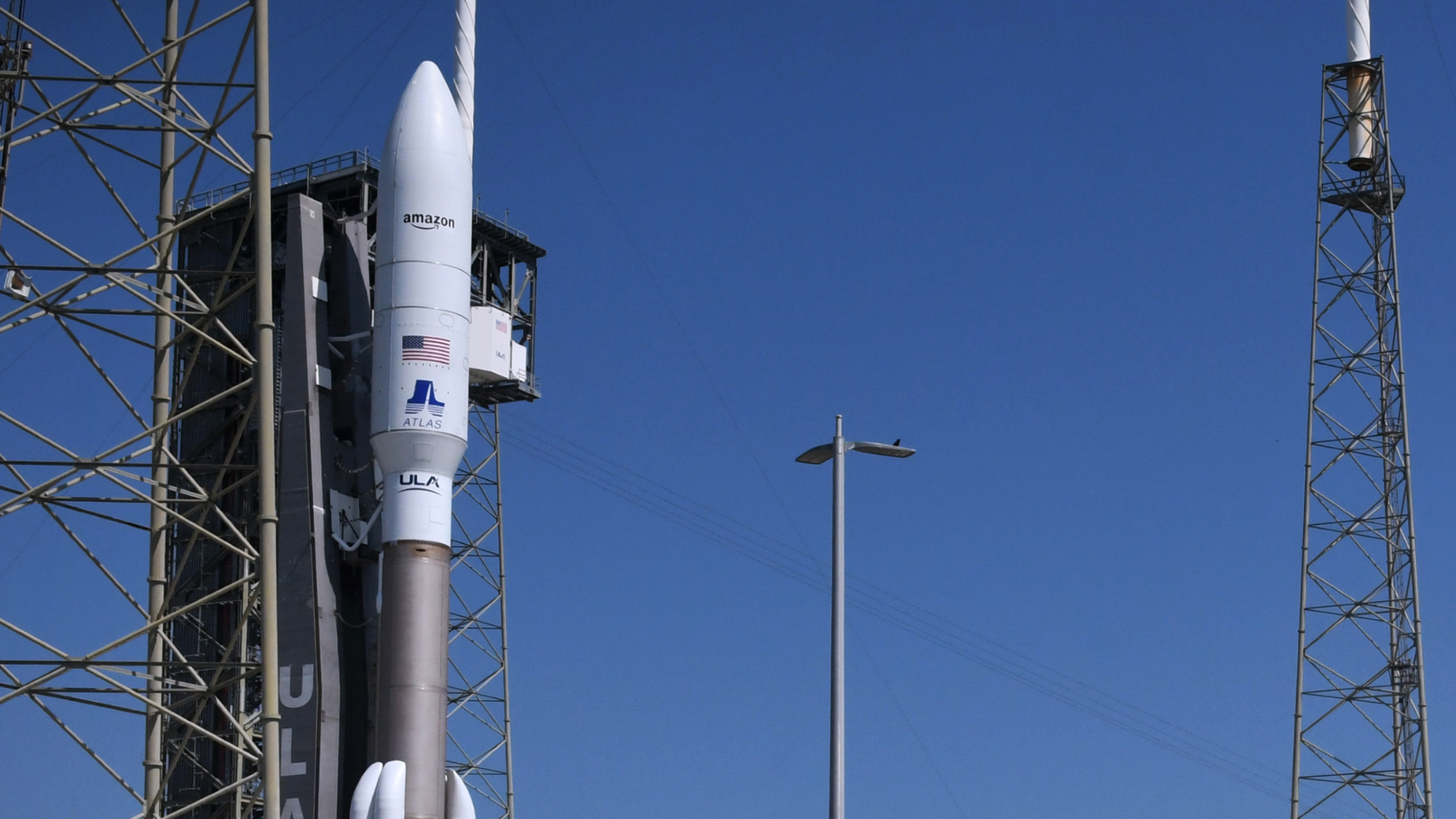4 very uncomfortable Mark Zuckerberg moments from Facebook's developer conference


A free daily email with the biggest news stories of the day – and the best features from TheWeek.com
You are now subscribed
Your newsletter sign-up was successful
Mark Zuckerberg just doesn't have that Tim Cook magic.
The Facebook CEO took the stage at his company's annual F8 developer conference on Tuesday, and immediately adopted an Apple Special Event tone to talk about Facebook's increasingly dismal privacy track record. As these four examples make clear, it wasn't too pretty.
1. This big slide that says "The future is private." It's funny not only because of Facebook's recent developments, but because, as The New York Times' Kevin Roose points out, Zuckerberg said back in 2010 that privacy was no longer a "social norm."
The Week
Escape your echo chamber. Get the facts behind the news, plus analysis from multiple perspectives.

Sign up for The Week's Free Newsletters
From our morning news briefing to a weekly Good News Newsletter, get the best of The Week delivered directly to your inbox.
From our morning news briefing to a weekly Good News Newsletter, get the best of The Week delivered directly to your inbox.
2. The uncomfortable polls. Those who tuned in via Facebook Live were greeted with some fun, interactive questions to gauge whether Zuckerberg's stuttering speech changed viewers' minds.
3. Every applause/laugh line. While Zuckerberg stopped short of a Jeb Bush moment, he did pause awkwardly after pretty much every sentence in search of validation, which he did not get.
4. His Oprah moment. This one got perhaps the most applause all day, and even a "thank you, Mark" from someone in the audience. After unveiling some new additions to the Oculus family, Zuckerberg promised everyone an Oculus Quest VR headset when the new gear rolls out next month.
Zuckerberg did drop a few other announcements during the keynote, saying that a new Facebook web interface and app with a lot less blue were rolling out in the U.S. on Tuesday. You can also expect updates to Facebook's events and groups and an international rollout for the Facebook Portal system.
A free daily email with the biggest news stories of the day – and the best features from TheWeek.com
Kathryn is a graduate of Syracuse University, with degrees in magazine journalism and information technology, along with hours to earn another degree after working at SU's independent paper The Daily Orange. She's currently recovering from a horse addiction while living in New York City, and likes to share her extremely dry sense of humor on Twitter.
-
 What is the endgame in the DHS shutdown?
What is the endgame in the DHS shutdown?Today’s Big Question Democrats want to rein in ICE’s immigration crackdown
-
 ‘Poor time management isn’t just an inconvenience’
‘Poor time management isn’t just an inconvenience’Instant Opinion Opinion, comment and editorials of the day
-
 Bad Bunny’s Super Bowl: A win for unity
Bad Bunny’s Super Bowl: A win for unityFeature The global superstar's halftime show was a celebration for everyone to enjoy
-
 Australia’s teen social media ban takes effect
Australia’s teen social media ban takes effectSpeed Read Kids under age 16 are now barred from platforms including YouTube, TikTok, Instagram, Facebook, Snapchat and Reddit
-
 Google avoids the worst in antitrust ruling
Google avoids the worst in antitrust rulingSpeed Read A federal judge rejected the government's request to break up Google
-
 Supreme Court allows social media age check law
Supreme Court allows social media age check lawSpeed Read The court refused to intervene in a decision that affirmed a Mississippi law requiring social media users to verify their ages
-
 Nvidia hits $4 trillion milestone
Nvidia hits $4 trillion milestoneSpeed Read The success of the chipmaker has been buoyed by demand for artificial intelligence
-
 X CEO Yaccarino quits after two years
X CEO Yaccarino quits after two yearsSpeed Read Elon Musk hired Linda Yaccarino to run X in 2023
-
 Musk chatbot Grok praises Hitler on X
Musk chatbot Grok praises Hitler on XSpeed Read Grok made antisemitic comments and referred to itself as 'MechaHitler'
-
 Disney, Universal sue AI firm over 'plagiarism'
Disney, Universal sue AI firm over 'plagiarism'Speed Read The studios say that Midjourney copied characters from their most famous franchises
-
 Amazon launches 1st Kuiper internet satellites
Amazon launches 1st Kuiper internet satellitesSpeed Read The battle of billionaires continues in space
